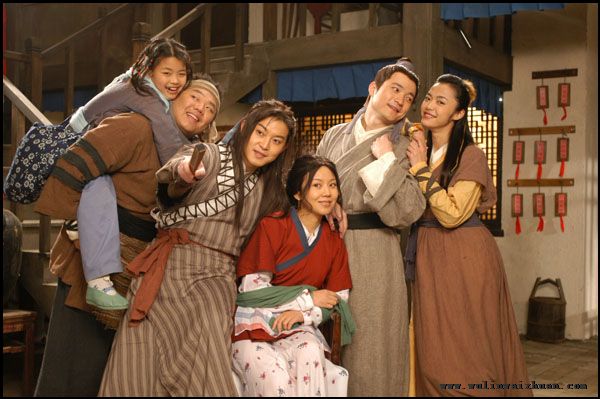China's sitcoms lack the bite they need to be successful
 0 Comment(s)
0 Comment(s) Print
Print E-mail Globaltimes.cn, January 6, 2016
E-mail Globaltimes.cn, January 6, 2016
This January marks the tenth anniversary of the first episode of the TV series "My Own Swordsman". Online many fans expressed surprise at how fast a decade had gone by, while others remarked how the show had earned an irreplaceable position in China's TV history.
 |
|
A screenshot of TV series "My Own Swordsman" [File photo] |
While Western sitcoms such as "The Big Bang Theory or Modern Family" often win big name awards, sitcoms in China have a much harder time getting recognition. Since the sitcom format first appeared on mainland TV in 1994, there have been only a few truly influential Chinese sitcoms. While the genre is still rather young compared to the US or the UK, this lack of successful sitcoms demonstrates the dilemma comedy faces in China. Restricted in their ability to make light of certain subjects, sitcoms lack the bite that is needed to make them truly impactful.
Breaking ground
After earning his master degree at the University of Missouri in the US, multi-talented director and actor Ying Da tried to import sitcoms to China during the early 1990s. At the time, Shanghai TV was having great success with its dubbed version of US sitcom "Growing Pains" (1985-92) in China, showing that there was certainly a potential audience base for Chinese-made sitcoms in the country.
Cooperating with the late scriptwriter Liang Zuo, Ying started development on "I Love My Family", a sitcom about a family of six in Beijing who each had their own distinct backgrounds. Wanting real laughter to accompany the performances, Ying filmed in front of a live studio audience. Except for Ying's other work Chinese Restaurant, no other sitcom in China would ever do so again.
Even though this sitcom is commonly recognized as one of the top sitcoms in China, it was criticized a lot when it first appeared on TV in 1994. Beijing TV stopped airing the show after six episodes because some audiences said it was making fun of retired officials.
After audiences gradually got used to its humor that would cover everything from family life to national policy, the show not only gained a huge following but kicked off the sitcom genre in China. Establishing a TV production studio in 1994, Ying went on to create a number of "Ying-style" sitcoms such as "Chinese Restaurant" (1998), "Xianren Madajie" (2000), "Dongbei Yijiaren" (2001) and "The Railway Station" (2002). Filmbug.com describes Ying as the "Norman Lear of China" for his contributions.
According to an interview with the Beijing Daily, then general manager of Ying's studio Wang Xiaojing recalled that most of the sitcoms were not huge money-makers.
"In China, sitcoms barely had a future. Audiences found them too low-brow, while TV stations weren't willing to pay high prices for them. In that case, who was willing to make them?" Wang said.
In an interview with the Beijing Daily two decades after the first broadcast of "I Love My Family", Ying concluded that the success of "I Love My Family" was its willingness to be critical of social realities in China. Something that he feels modern comedies lack.
"When we write comedy nowadays, we go soft so we won't hurt anybody. But how can a comedy go without hurting someone?" Ying said.






Go to Forum >>0 Comment(s)